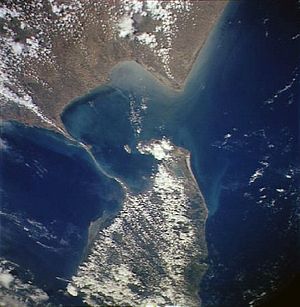A Sri Lankan court on Wednesday ordered the release of 116 Indian fishermen who had been arrested over the last two months for allegedly crossing the International Maritime Boundary Line (IMBL) that demarcates Indian and Sri Lankan waters. The prisoner release comes after talks that took place in late January between Indian and Sri Lankan officials and their respective fishermen’s associations.
The release of the fishermen was intended to ease the next round of talks between officials, which were expected to take place on Thursday this week, but those talks have now been postponed. According to The Hindu, “the date for the next meeting is yet to be fixed.
Further complicating matters for the Indian government, the State government of Tamil Nadu said that it would refrain from engaging in the next round of talks unless Sri Lanka released all 177 Tamil Nadu fishermen and their 44 boats currently under Colombo’s custody.
Fishing disputes have been a feature of relations between the two South Asian neighbors for some time now. Sri Lankan Navy personnel have on occasion fired at and killed Indian fishermen for fishing in the narrow Palk Strait. Sri Lanka has also arrested several Indian fishermen for crossing the IMBL. The Indian fishermen, the majority of whom are ethnically Tamil, largely allege that the areas in which they conduct their fishing activities should not be a major issue given that Tamil fishermen have traditionally operated in these areas. One source notes that around 530 Indian Tamil fisherman have been killed at the hands of the Sri Lankan Navy.
The issue is complicated by the issue of Katchatheevu Island – an uninhabited island that India ceded to Sri Lanka in 1974 based on a conditional agreement. In 2009, Sri Lanka declared Katchatheevu sacred land given the presence of a Catholic shrine there – a move that was widely condemned by J. Jayalalithaa, the Chief Minister of Tamil Nadu (she wasn’t Chief Minister at the time but has become a vocal advocate for Tamil interests in Sri Lanka). Jayalalithaa has also condemned defense cooperation between India and Sri Lanka on the grounds that it ignores the interests of India’s sizable Tamil population.
Katchatheevu isn’t a dispute between the central governments of India and Sri Lanka – the central government in New Delhi recognizes Sri Lanka’s sovereignty over the island per the 1974 accord. The issue has become a domestic political issue between Tamil fishing interests, Tamil Nadu politicians, and the central government. Katchatheevu falls under the the territory Tamil fishermen regard as “traditionally” belonging to them and want to preserve the right to fish there.
The Joint Working Group on the fishing issue is therefore composed of central government officials from both countries and individuals representing the fishermen’s interest. The goal of the current process is to work out an agreement that reduces the use of force against Indian fishermen straying near or into Sri Lankan waters, and streamlining judicial procedures so that Sri Lanka can respond to fishing violations by Indian fishermen in a manner agreeable to the government of Tamil Nadu, India’s southernmost state.
































